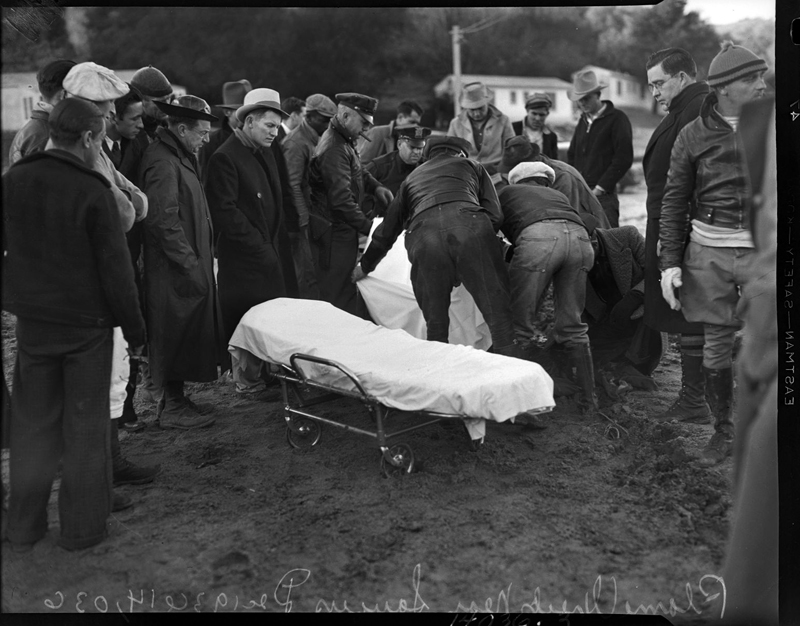The Santa Clarita City Council voted 5-0 Tuesday to call on Rep. Howard “Buck” McKeon, the area’s congressman, to seek a legislative solution to the planned 56-million-ton Cemex sand and gravel mine.
If that doesn’t sound like “new” news, it’s probably because McKeon has introduced six bills over the past dozen years to thwart the so-called “mega-mining” project in Soledad Canyon that city officials and community activists believe would foul the Santa Clarita Valley’s air, water and traffic system.
None of the six bills has gotten so much as a congressional hearing.
Seventeen people signed up to address the City Council Tuesday. All were united in their message of support for a city resolution calling on McKeon to try again – and most blamed McKeon for a lack of action.
Although he is in Santa Clarita this week, McKeon did not attend the council meeting and did not send a representative to speak on his behalf.
A current bill by Sen. Barbara Boxer – S. 759 – contemplates a complex transaction in which Cemex’s federal mining contracts would be canceled in exchange for cash generated from the sale of federal land in Victorville.
McKeon has previously said Rep. Doc Hastings (R-Wash.), chairman of the House Natural Resources Committee, determined that the transfer of cash would violate a House rule banning earmarks. McKeon has refused to introduce companion legislation to Boxer’s bill on that basis.
But that’s not the only hurdle. While it endorsed similar legislation in 2008, the Victorville City Council – a party to the proposed transaction – balked at the Boxer bill in January for three reasons: It wouldn’t have the same planning authority over the particular parcels; the state eliminated redevelopment, which Victorville planned to use to improve the newly gained federal lands; and because another cement manufacturer objected to the diminution of Victorville’s mining resources.
Mike Murphy, the city of Santa Clarita’s intergovernmental relations officer, hinted Tuesday that there might be another way to get the job done – one that wouldn’t violate the House ban on earmarks and might not even involve Victorville.
“Mr. McKeon has said he can’t introduce same language he’s previously introduced because of (the earmark issue),” Murphy told the council. “That is not the only avenue available to us. (City) staff believes that (there is) an opportunity for language that stays within confines of our three goals but would not be encumbered by the earmark ban.”
The city’s three goals are to get the federal government to cancel Cemex’s two 10-year mining contracts in Soledad Canyon; compensate Cemex for the value of the contracts; and withdraw Soledad Canyon from the federal government’s list of mining sites.
The crux of the resolution adopted by the City Council on Tuesday reads as follows:
“The City Council formally requests that Representative Howard P. “Buck” McKeon work with Chairman Hastings, Cemex, and the City of Santa Clarita in developing, introducing, and having enacted into law during the 112th Congress, bi-partisan legislation that accomplishes the three key goals of the City of Santa Clarita and Cemex, and does not violate the House of Representatives rule relating to earmarks.”
Murphy ran through the history of the city’s fight to block the mine, reminding the council that “since 1999, the city has been aggressively opposing the 56-million-net-ton mine.”
The gross tonnage, counting tailings, is estimated at 78 million tons over 20 years – and that might not be the last of it.
Andrew Fried, president of SAFE Action for the Environment – a citizens group formed specifically to fight the mining project – said it’s likely the federal Bureau for Land Management would re-lease the mining site for additional 20-year periods, and other mining companies would file permits in the area to stay competitive.
Going forward with the Cemex mine would be “like intentionally planting a cancerous tumor in the heart of our community,” Fried said.
“This is the moment of truth here,” said Diane Trautman, a former city planning commissioner. “Air quality, water quality and transportation will be irreversibly impacted for possibly 100 years.”
Dr. Lee Rogers, McKeon’s Democratic rival in this year’s congressional election, criticized McKeon for his adherence to the earmark rule.
“This is a House rule,” Rogers said. “It is not a law. It can be overturned for this type of action.”
The House frequently suspends its own rules when certain bills would run afoul of them.
Tuesday’s speakers didn’t equivocate.
“I’m mad,” said Berta González-Harper of Canyon Country. “How dare (McKeon) use this earmark (rule) as an excuse? What alternative has he come up with? What besides Doc (Hastings) says we can’t do it? Nothing. This is a huge project that will irreparably change this valley. This is not something we can undo after it’s done.”
Councilman Bob Kellar, who with Murphy and others met last week with representatives of Sens. Boxer and Diane Feinstein, D-Calif., expressed similar frustrations.
“We’re nervous,” Kellar said. “We’re worried.”
“As we all know, (Boxer’s bill) needs a companion bill in the House. That’s the rub.”
“Our senators are willing to resolve this,” said Councilman TimBen Boydston. “(McKeon) is the reason it is not passing.”
“If you want to see what (the Cemex mine) would look like,” said Councilwoman Laurene Weste, “just go down to Irwindale. We need to remain united as a community. We cannot have this.”
Kellar urged Santa Clarita residents to visit SAFE’s website, safe4environment.org, and sign an online petition demanding federal action.
More than 5,000 signatures were collected in a few short weeks, but “we need to get this to 10,000, 15,000,” Kellar said. “We have got to absolutely just run them over: We demand that they represent the people.”
Like this:
Like Loading...
Related




 Tweet This
Tweet This Facebook
Facebook Digg This
Digg This Bookmark
Bookmark Stumble
Stumble RSS
RSS




























REAL NAMES ONLY: All posters must use their real individual or business name. This applies equally to Twitter account holders who use a nickname.
No Comments